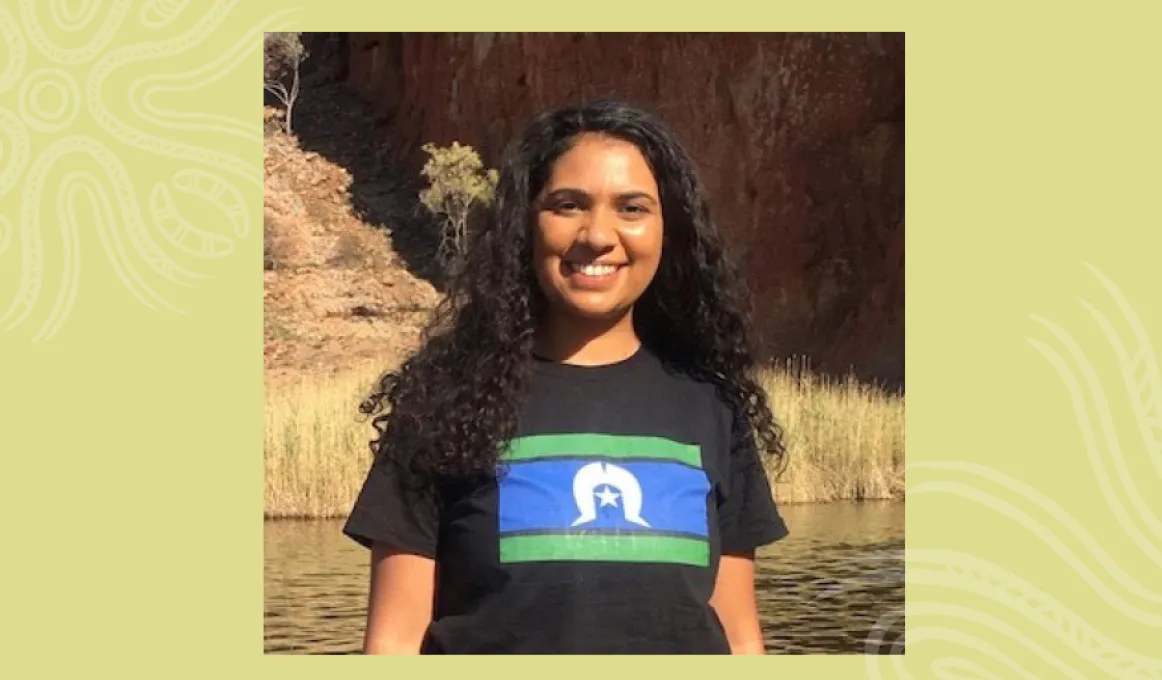Renee Phillips - International Day of Women and Girls in Science

Renee Phillips teaches maths and science and wants to see more Indigenous teachers and students engage with STEM studies and careers.
Tuesday 11 February 2020 is International Day of Women and Girls in Science.
To mark this day we invited Renee Phillips, a Canberra based Maths and Science teacher, to write about getting more Aboriginal and Torres Strait Islander teachers and students engaged in STEM (Science, Technology, Engineering and Mathematics) subjects. Renee is a member of CSIRO and the Stronger Smarter Institute’s Indigenous Girls’ STEM Academy steering committees.
‘I am from Saibai Island in Zenadth Kes (Torres Strait Islands) with ties to Kairuku in Papua New Guinea. I am in my fifth year of teaching Science and Maths at a local high school on Ngunnawal/Ngambri country called Melrose High.
Here I teach students in years 7 to 10. My journey in becoming a Science teacher has not been as straight forward as other Science teachers. I wanted to become a Microbiologist after graduating Year 12 and I would have to say that was thanks to my Year 9 Science teacher.
She was really the only person in my schooling experience that believed in my ability to succeed and do well. She made the subject enjoyable, engaging and interesting and importantly, she left me wanting to know more and to dig deeper.
I also found that Science and Maths just made more sense to me than humanities subjects; the STEM language just speaks to me better than any other subject. I studied a Bachelor of Science through the Australian National University and graduated in 2013. From there I did not find laboratory work particularly enjoyable and decided to pursue teaching.
I choose to teach because it blends my passions: Science and working with youth. I have also had the pleasure of knowing many teachers and hearing their many wondrous stories and experiences in the profession compelled me to pursue the career.
There is a great deficit in the number of Aboriginal and Torres Strait Islander teachers across Australian schools and I see it as imperative to have greater representation in a space that has not historically been welcoming, nor space in which we have been able to dominate.
The culture and system of schools needs to be reformed for more of our people to pursue the career. This includes ensuring that there is more than adequate help and support provided to any new or existing Indigenous teachers and that they are valued inside and outside of schools.
Education departments and schools need to be more accountable for ensuring their Indigenous teachers are being mentored and are working in culturally-safe environments. Indigenous people should feel confident to enter the teaching profession and that should be rigorously supported and encouraged. Teaching is a space where we have opportunities for influence and impact.
I chose to teach Science and Maths because it was an innate match. Observation, inquiry and successful innovation are all living skills that have enabled our culture to survive for over 60,000 years. This is indeed the proud cultural heritage of Indigenous Australians.
So it is fundamental that we acknowledge and re-discover the natural abilities and skills that have been passed down through our ancestral bloodline. STEM comes naturally to our people.
As a First Nation woman teaching STEM, a field that has been largely dominated by non-Indigenous men, I see the great importance of reclaiming this space and for more Aboriginal and Torres Strait Islander women to feel more comfortable and confident to enter and occupy the space.’